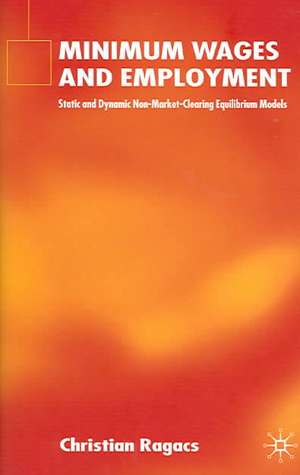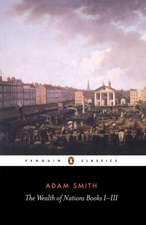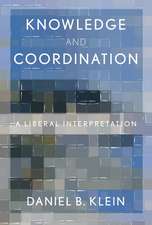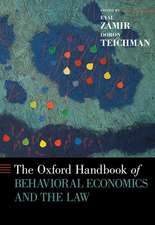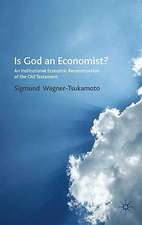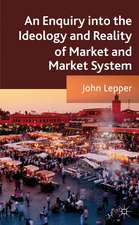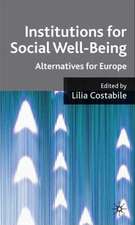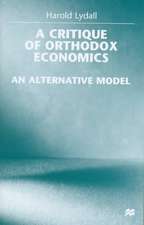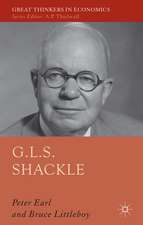Minimum Wages and Employment: Static and Dynamic Non-Market-Clearing Equilibrium Models
Autor C. Ragacsen Limba Engleză Hardback – 8 iun 2004
| Toate formatele și edițiile | Preț | Express |
|---|---|---|
| Paperback (1) | 372.98 lei 6-8 săpt. | |
| Palgrave Macmillan UK – 8 iun 2004 | 372.98 lei 6-8 săpt. | |
| Hardback (1) | 379.93 lei 6-8 săpt. | |
| Palgrave Macmillan UK – 8 iun 2004 | 379.93 lei 6-8 săpt. |
Preț: 379.93 lei
Nou
Puncte Express: 570
Preț estimativ în valută:
72.73€ • 75.60$ • 60.30£
72.73€ • 75.60$ • 60.30£
Carte tipărită la comandă
Livrare economică 06-20 februarie 25
Preluare comenzi: 021 569.72.76
Specificații
ISBN-13: 9781403934987
ISBN-10: 1403934983
Pagini: 208
Ilustrații: XII, 191 p.
Dimensiuni: 140 x 216 x 17 mm
Greutate: 0.38 kg
Ediția:2004
Editura: Palgrave Macmillan UK
Colecția Palgrave Macmillan
Locul publicării:London, United Kingdom
ISBN-10: 1403934983
Pagini: 208
Ilustrații: XII, 191 p.
Dimensiuni: 140 x 216 x 17 mm
Greutate: 0.38 kg
Ediția:2004
Editura: Palgrave Macmillan UK
Colecția Palgrave Macmillan
Locul publicării:London, United Kingdom
Cuprins
Introduction PART I: ON THEORY AND METHODOLOGY An Inquiry into the Theory of Minimum Wages Minimum Wages and "General Equilibrium": Methodological Problems PART II: MINIMUM WAGES AND COMPARATIVE STATICS Supporting the Partial Equilibrium Results Minimum Wages, Unemployment and the Creation of Human Capital PART III: MINIMUM WAGES AND ECONOMIC GROWTH Minimum Wages, Human Capital and Growth Minimum Wages, Unemployment and Growth Conclusions
Notă biografică
CHRISTIAN RAGACS is Assistant Professor at the Vienna University of Economic and Business Administration. He teaches courses on economic policy, micro- and macroeconomics and economic growth. He received the Theodor-Körner prize for his contribution to growth policy in 1997. His fields of research are economic growth and labour economics.
